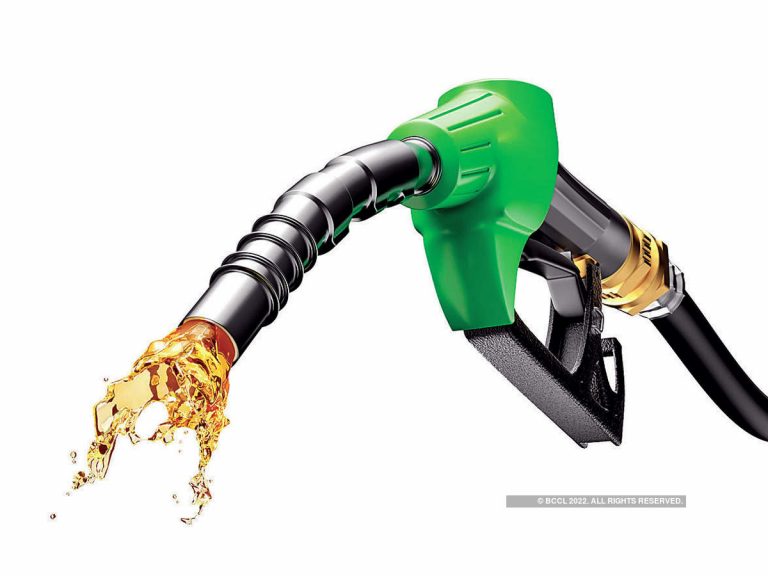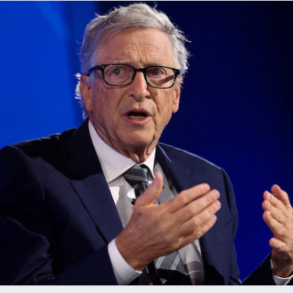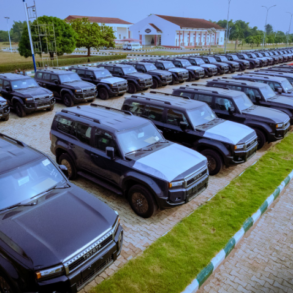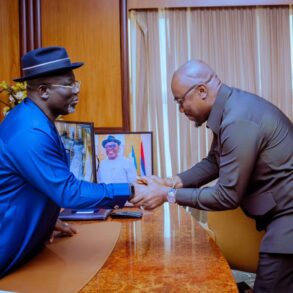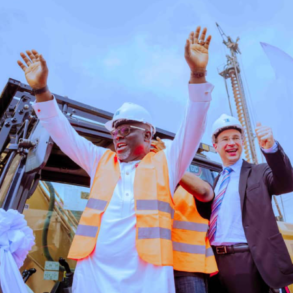From Tonnie Iredia
Whether it was for fear of nationwide strikes by labour or due deference to security reports, the decision of the Buhari administration to shelve the implementation of the proposed fuel subsidy removal was probably the best well-thought-out option for the nation.
Otherwise, from just one week of strikes, the government would have lost sums in excess of the subsidy she was seeking to avoid. However, putting a halt to fuel subsidy is an economic necessity; with our neighbours allegedly selling the same fuel for higher amounts in their countries, we too can do with better revenue generation.
Whereas we are aware of the expectation that as an oil-producing nation, selling cheap fuel to our people can pass for dividends of comparative advantage, we need to realize that the value of fuel subsidy if ploughed to development projects would yield greater benefits to our society.
RELATED STORY: See The Reasons Senator Chris Ekpenyong Wants Fuel Subsidy Removed
On that score, we support an end to fuel subsidy provided what accrues to the nation on the subject will be prudently managed. In other words, it is not enough to support the removal of subsidy if we are not likely to depart from the usual tendency to squander the resultant increased earnings.
One obvious point in support of the reversal of the removal of subsidy is the opportunity it gives our nation to change the narrative by doing something different. We certainly need to desist from the old hypocritical posture of purporting to provide palliatives to help the poor, when in truth the entire amount provided would neither be fully utilized nor will the scanty palliatives procured get to the poor.
There was the famous old story of 2004 about a grant by the federal government of N200 million to each state to which each of them was to add its own contribution of N100 million for the purchase of buses so as to bring down the expected rise in transportation that would follow the fuel price increase.
No one knew who got the N200million or who added or did not add its N100million. What we found was that there were no buses. In later years, when a few buses were purchased after another strike, both our Labour leaders who had become quite wealthy and government officials laid claim to the ownership of the vehicles leaving citizens to wonder for long on what transpired.
Now that the government has postponed the policy by 18 months, we have ample time to prepare our citizens mentally and psychologically for the policy. Bearing in mind that what makes a policy succeed is how it is planned and managed, the Buhari administration has a duty to evolve a programme of action in the form of a timetable of what ought to be done; when, where and how before the D-Day.
It must be a detailed sequential programme whose last stages the next administration would conclude seamlessly. Of course, the reverse would be the case if we adopt our traditional fire-brigade approach to our preparation for every important event such as international cup competitions. The programme to end fuel subsidy must have an in-built back-up to accommodate inevitable occurrences and it must be diligently pursued while carrying along all sectors of the country.
The public will remain unimpressed if as usual, genuine efforts are not made to overcome the challenge of inaccurate statistics. What is the exact number of barrels of oil produced in a day in our country? This question is critical because guesswork in operations by the government and its agencies largely accounts for public cynicism and disbelief in anything official. Nigeria does not know its correct population or even the number of voters at an election and there is a large group that benefits from our contrived official inaccuracies.
The other day, the government accused the striking association of resident doctors of misleading her to pay some unemployed doctors! Was there no record of the number of employees? Similarly, we do not seem to know the exact quantum of petroleum products consumed daily by our people. Of course, if there was an authentic record, it would have been superfluous for the House of Representatives to set up a body to work on it last week.
Thus, it makes little sense to pay subsidies on indeterminable items and expect to make a success of the venture.
Considering the immense benefits that would accrue to the nation when the burden of paying huge sums on fuel subsidy is stopped, it is necessary to vigorously sell the idea to all Nigerians. For this reason, the entire period between now and when the policy eventually takes effect must be devoted to massive value-reorientation.
We need to reverse the high level of lack of patriotism by encouraging all to embrace the larger picture of national interest over personal gains. The National Orientation Agency must be specifically challenged and mobilized to take the message to every nook and cranny of the nation.
The message which must detail what we all stand to gain from the policy must be presented in the language the people understand as well as the positive role that each person can play in order to take credit as a nation builder. Other organs of mass communication, the media and traditional institutions must be similarly charged to sustain the momentum until many assimilate the message.
It is only after the full engagement of all and sundry that we can begin to expect the emergence of some converts who would be ready to volunteer to make sacrifices for the common good. As at today we are quite far from that position.
What is in vogue now is the idea of everyone seeking to make it again even at the expense of the state because many believe that government is always insincere. This appears to explain the popularity of the practice of hoarding fuel in anticipation of the price increase which puts the entire nation in agony even before a new price regime fully matures. It is for the same reason that petrol station managers who are unscrupulous about cheating the nation for personal gain prefer to patronize hawkers rather than sell at the prevailing price to motorists.
Sadly, as if our people are in competition to do each other in, every increase in the price of fuel is tripled for commuters by public transport operators.
Comments of listeners in popular radio programmes clearly confirm the public perception that Nigeria’s fuel subsidy is a gigantic fraud. They see it as deception, the government’s huge projects at exorbitant costs amidst claims that it is always broke. Two days ago, some commentators deprecated the rising cost of cement following the call in Sokoto by the Central Bank Governor, Godwin Emefiele for lower prices as cement has not depended on foreign exchange in the last 7 years.
But what seems to greatly irritate many Nigerians is that it is only the poor that are expected to tighten their belts. Government budget hardly changes with items such as computers and scanners in some offices consuming millions every year. Are such items perishable annually that they are allocated the same huge sums in every budget?
It is time for political office holders to exhibit leadership by example. During the Murtala/Obasanjo military government, the need to tighten our belts was easy to see and believed because the government began by reducing the luxuries at the top. The official car of the Head of State at the time was persuasively reduced to the local Peugeot 504 made by PAN. We, therefore, urge our current leaders to do the following before subsidy removal: rework our bogus budget, reduce huge sums on entertainment and travels, ban all government officials from first/business class air travels.
Budget padding and the introduction of non-federal items into the national budget should be rejected while reckless spending especially those exposed in the Auditor-General’s report should attract stern measures. Not many people would be as bitter as they are now over the subsidy removal policy if before it is done, financial discipline is seen across the board.



